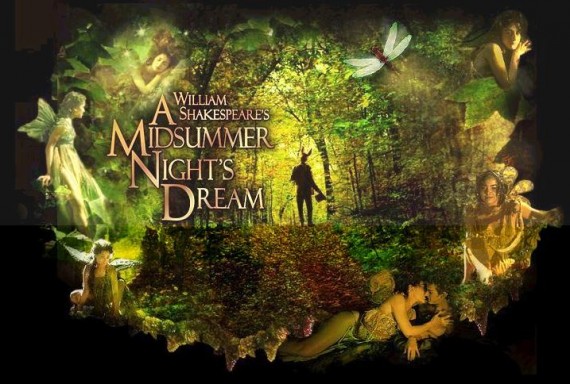Shakespeare in the Original Pronunciation
If you're like me, you think of William Shakespeare's plays as being rendered in an archaic but decidedly upper crust British English. It turns out that this is an artifact of modern theater.
If you’re like me, you think of William Shakespeare’s plays as being rendered in an archaic but decidedly upper crust British English. It turns out that this is an artifact of modern theater.
Thanks to the work of Paul Meier, audiences can get a sense of what it might have been like to eavesdrop on opening night of “Hamlet” or “Romeo and Juliet” at the Globe Theater in London or to listen in on a shipboard conversation on the Mayflower as it approaches the shores of the New World.
“What did English sound like back then?” Meier said. “Was it posh or down to earth? Was it anything like today’s British or American English? Would we understand it?”
Meier is staging Shakespeare’s “A Midsummer Night’s Dream” in November, and it will be the first time in North America that a Shakespeare production is being performed entirely in the original pronunciation.
[…]
“American audiences will hear an accent and style surprisingly like their own in its informality and strong r-colored vowels,” Meier said. “The original pronunciation performance strongly contrasts with the notions of precise and polished delivery created by John Gielgud, Laurence Olivier and their colleagues from the 20th century British theater.”
Here’s a snippet on video:
It’s still pretty hard to follow without the subtitles, forcing me to “translate” the speech rather than simply absorb it the way I do with most productions in modern English. But a fascinating and different take.
via Jason Kottke







Elitist.
This is actually pretty close to the pronunciation I used when I read Chaucer (even though that is a couple hundred years earlier and a bit more Germanic in spelling). I like it a lot better than the courtier English accent I usually hear when Shakespeare is performed.
Actually, I’ve read someplace that the original pronunciation was close to Cockney. That doesn’t sound Cockney to me. In fact, that sounds a bit Irish to my ear.
Here’s some more, Pronouncing Shakespeare by David Crystal
Sonnet-116 and Troilus and Cressida Act 1 Scene 1. That does sound Irish to me.
Any comparable readings of Milton, Sam?
They might get me through the damn works.
In braille.
Punk.
Not particularly new. Look up “Great Vowel Shift”. As it works out the American English dialect is on one side of the divide while modern British English on the other.
However, I can’t help but wonder if the players aren’t still cleaning things up a bit to avoid shocking their audience. My understanding is that the closest thing to Shakespeare’s dialect extant today would be a rural backwoods Appalachian dialect.
I’ve actually heard that used in workshop Shakespeare productions and it produces some amazing revelations.
“My understanding is that the closest thing to Shakespeare’s dialect extant today would be a rural backwoods Appalachian dialect.”
I’ve heard that, too. The example used was the word ‘join’ used in an Elizabethan era poem and pronounced ‘jine’ (as it is in some parts of Appalachia) so as to complete a rhyme, but, alas, the poet and the poem are lost in my memory.
It sounds like it would be fun to perform in that accent, once the actor got it down.